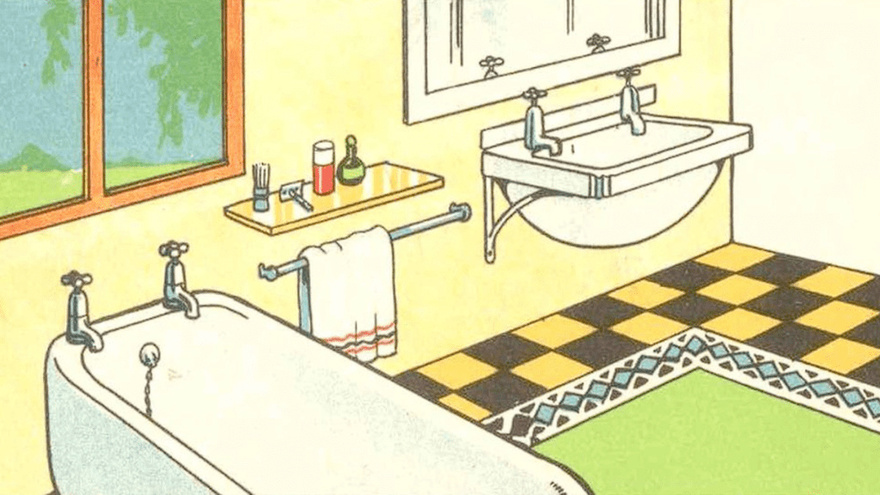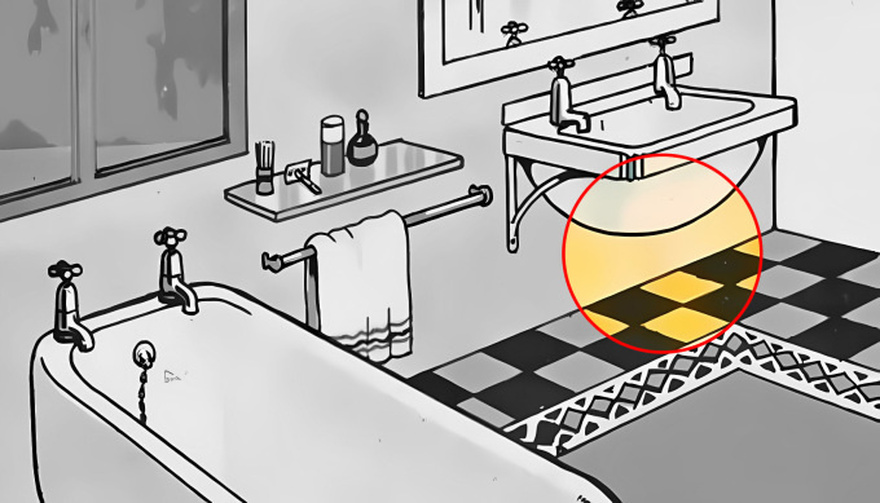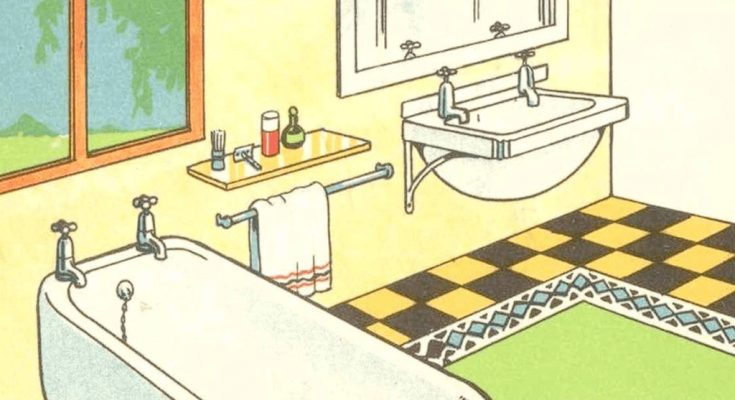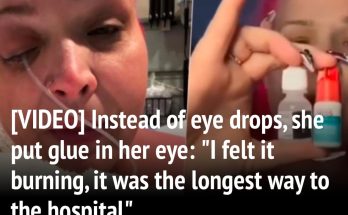There’s something intriguing about puzzles that make us question what we’re seeing. They test our focus, attention to detail, and even our assumptions.
There’s something intriguing about puzzles that make us question what we’re seeing. They test our focus, attention to detail, and even our assumptions. Today, we’re diving into a deceptively simple but challenging puzzle: spotting the one mistake in an image of a seemingly ordinary bathroom. Think you can find it? This puzzle is trickier than it appears, and many people miss the answer on their first attempt. Let’s break it down step-by-step to see if we can solve it together.
Why People Often Miss the Answer

When faced with puzzles like these, it’s natural to rely on assumptions about what we expect to see in familiar settings. In a bathroom, for instance, we have certain expectations: a sink, bathtub, mirror, towel rack, etc. These expectations can cloud our judgment, causing us to overlook important details. The most common mistake people make in this puzzle is focusing on obvious elements like decor or color instead of considering functionality. This puzzle challenges us to look beyond the surface and think critically about what’s missing.
Step-By-Step Guide to Solving the Puzzle
Let’s examine each area of the bathroom image to see if we can identify the hidden mistake.
Step 1: Examine the Bathtub and Sink
Start with the bathtub and sink, the primary fixtures in most bathrooms. Focus on the faucets, water flow, and placement of small items nearby. It’s tempting to assume that any odd positioning might be the answer, but everything seems standard in terms of their appearance and location. At first glance, nothing stands out as incorrect here.
Step 2: Analyze the Floor Pattern and Decor
Next, move your attention to the bathroom floor and any decor. Some might assume that the floor’s color scheme or pattern is off, especially if there’s an unusual pattern or contrasting border. However, after closer inspection, it’s clear that the floor design is intentional and doesn’t indicate an error. These details may act as visual distractions, pulling us away from finding the actual mistake.
Step 3: Observe the Wall Items and Mirror
Take a close look at the items mounted on the walls, such as the towel rail and shelf with toiletries. These items look as they should, with familiar bathroom essentials like a toothbrush, cup, and soap arranged on the shelf. The mirror appears to be placed correctly, and there’s nothing unusual about its reflection. Again, nothing here suggests a problem, so we continue our search.
Step 4: Look at the Window
Sometimes, small windows in bathrooms lack coverings, which may seem odd if privacy is expected. However, many bathrooms are designed with frosted glass windows or are situated in private areas where curtains aren’t needed. The absence of a curtain here doesn’t necessarily indicate a mistake, so it’s likely not the issue we’re searching for.
Step 5: Pay Close Attention to the Plumbing
Now, let’s focus on one of the most functional aspects of a bathroom: the plumbing. In this puzzle, the hidden mistake is something many people overlook—a missing drainage pipe under the sink. Without this essential pipe, there’s no way for water to flow out after use, rendering the sink effectively unusable. This small but significant detail is the solution to the puzzle.
The Answer: Missing Drainage Pipe

The mistake in this bathroom is the absence of a drainage pipe beneath the sink. While subtle, this missing feature is a major flaw. Bathrooms depend on a fully functional plumbing system, and without the drainage pipe, water would have no way to exit, leading to overflow or stagnation. This puzzle cleverly hides the answer in plain sight, playing on the fact that people often take functional details for granted.
Why Small Details Matter in Problem-Solving
This puzzle is a great reminder of how important small details are, especially when it comes to solving problems. Our brains often focus on aesthetic or obvious elements, overlooking practical, hidden details. In puzzles, and in life, paying attention to function over appearance can reveal the answers we’re looking for. Here, the key to solving the puzzle lay in observing what was missing, not what was present. This type of thinking helps us break free from assumptions and see things as they truly are.
Lessons Learned: Look Beyond the Surface
This bathroom puzzle teaches us an important lesson about observation and assumption. We often make quick judgments based on what we expect to see in familiar places. In doing so, we miss details that don’t immediately stand out. By training ourselves to look beyond the obvious, we can become better problem-solvers in all areas of life. Whether it’s a riddle or a real-life challenge, taking the time to think critically and examine every aspect often leads to the right answer.
Conclusion: Challenge Your Observation Skills with Puzzles Like These
Did you manage to spot the missing drainage pipe on your own, or did this puzzle surprise you? These types of challenges are fantastic for sharpening our observational skills and teaching us to look beyond first impressions. They remind us that sometimes, the solution isn’t in what’s visible but in what’s subtly absent. Keep challenging yourself with puzzles like these to develop a keen eye for detail and a sharper mind.
Try sharing this puzzle with friends and family to see if they can spot the error right away or if they fall into the same traps. With each new puzzle, you’ll strengthen your ability to observe, think critically, and solve problems more effectively. So, next time you’re faced with a tricky riddle, remember to slow down, take a closer look, and let the details reveal themselves.


